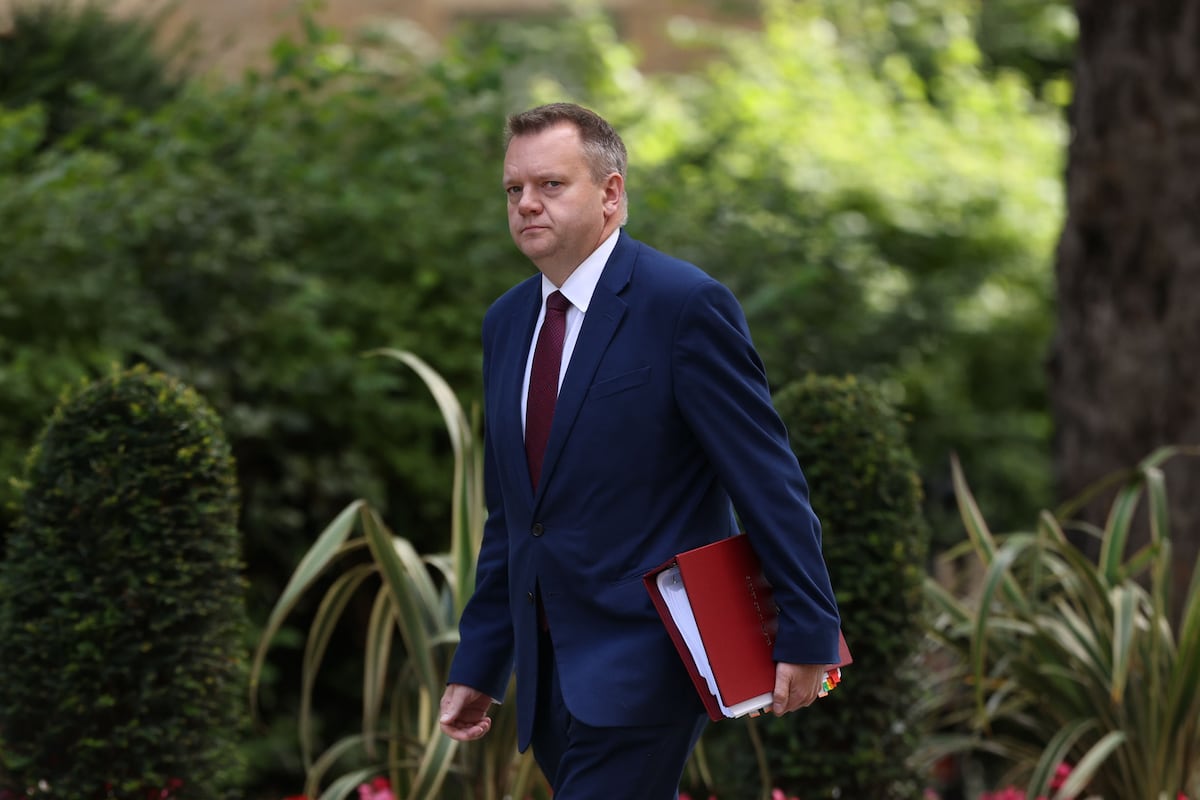Welshman Nick Thomas-Symonds (Griffithstown, 44 years old) is the new Secretary of State for Relations with the European Union in Keir Starmer’s Government. The trust placed by the Prime Minister in this affable and communicative lawyer is demonstrated by the fact that he has incorporated him into the core of his Cabinet, has entrusted him with the negotiation with Brussels and has also charged him with supervising some promised constitutional reforms, such as the modification of the anachronistic House of Lords.
Thomas-Symonds held a brief chat with a small group of correspondents, including Morning Express, during Thursday’s summit of the European Political Community, at Blenheim Palace, in Oxfordshire. Winston Churchill’s birthplace has also been chosen by Starmer and his government to restart their relations with the EU and reaffirm their commitment to international law.
Ask. The buzzword is reset. The Prime Minister has made reaching out to the EU a priority.
AnswerI think that today we have clearly seen the return of the United Kingdom to the European stage. My main task is to reset our relations with the EU. I have already been to Brussels twice. I believe that this summit opens a wonderful opportunity to start a new chapter, not only in terms of showcasing our country alongside its European allies, but also in order to discuss in depth the challenges that we all face, such as support for Ukraine, the fight against climate change or illegal migrant trafficking.
PWhat is the first objective of this reunion?
R. It is clear that we are in the early stages of the reset, although it is already clear that the tone has changed. The first thing we want to negotiate, as we made clear in our election programme, is a new security pact. And to do this we will need to return to the official negotiation, between senior officials, that was so common before we left the EU.
Knowing what’s happening outside means understanding what’s going to happen inside, so don’t miss anything.
KEEP READING
P. And the second objective is to jointly confront the immigration crisis, but this time without threatening to break the law.
ROur unequivocal commitment to always remain faithful to the European Convention on Human Rights is clearly different from the ambiguous position held by the previous Conservative Government. We will always comply with a text to which we are signatories, and which is a central pillar of human dignity. From the first day in office, we scrapped the plan to deport migrants to Rwanda. Today we want to make it clear that this is a challenge shared with our partners. We have already assigned additional officers from the National Crime Agency to work together with Europol, with the aim of making cooperation clear.
PWill they, like the Conservative government, pursue bilateral relations with each country or a direct relationship with Brussels?
RWe already have a very important bilateral relationship with France. We have a police and intelligence cooperation agreement with them to stop small boats from reaching the coasts of England. But it is clear that some things need to be dealt with directly with the EU, such as shared intelligence, or actions carried out across borders.
PThe post-Brexit deal on Gibraltar has been brought to a standstill, almost on the verge of being concluded, by the early elections in the United Kingdom. Is it possible to achieve it soon?
RI really believe it is possible. Foreign Minister David Lammy has been working on it since the very beginning. Obviously there are issues on which we are very firm, such as the sovereignty of Gibraltar or the autonomy of our military facilities. And we will never conclude an agreement with which the Gibraltarian Government does not agree. But I am very optimistic, because both parties have the political will to reach a solution.
Follow all the international information atFacebook andXor inour weekly newsletter.







